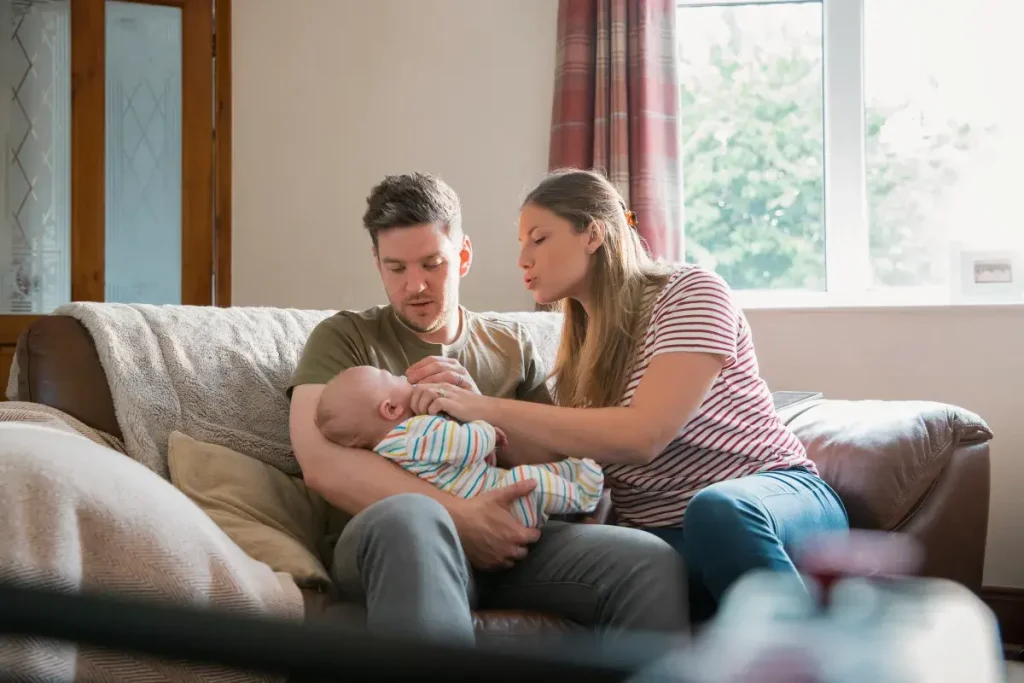Building Resilience in Babies: The Early Foundation of Emotional Strength
Resilience—that remarkable ability to bounce back from challenges—begins to develop long before children can express themselves through words or take their first independent steps. Recent insights from child psychology experts suggest that the earliest months of life are critical in establishing the emotional groundwork that will help children navigate life’s inevitable obstacles. This foundation isn’t something children are simply born with; rather, it’s carefully cultivated through countless small interactions with their caregivers, forming the basis for their future emotional health, confidence, and adaptability.
The science behind early resilience centers on attachment and emotional regulation. Dr. Ashleigh Powell, a chartered clinical psychologist and co-founder of Regal Private Therapy Practice in London, emphasizes that resilience development starts within the primary attachment relationship from birth. When parents consistently respond to their baby’s distress with warmth—through gentle eye contact, soothing words, or soft rocking—they teach their child that comfort reliably follows difficult feelings. These seemingly simple interactions create neural pathways in the developing brain that establish a fundamental sense of security. Each time caregivers help settle an upset baby, they’re essentially showing them that big emotions are manageable and temporary, not overwhelming or dangerous. This process, known as co-regulation, becomes the template for how children will eventually learn to comfort themselves when facing challenges later in life.
Daily routines play a surprisingly important role in developing resilience, acting as invisible scaffolding that supports a baby’s developing nervous system. When parents establish predictable patterns around feeding, sleeping, and playtime, they create a rhythm that reduces stress hormones and builds a sense of safety and security. Dr. Powell notes that simple consistent rituals like bedtime songs or morning cuddles help babies recognize patterns in their world, making it more navigable and less overwhelming. Within this secure framework, babies develop the confidence to explore and take small risks, knowing they have a safe base to return to. These routines don’t have to be elaborate—they just need to be consistent enough that the infant’s developing brain can recognize and anticipate what comes next, creating a foundation of predictability in an otherwise complex world.
Counterintuitively, allowing babies to experience appropriate levels of frustration is also essential for resilience development. Charlotte Cook, a psychotherapist with over 25 years of experience working with children and families, advises parents to resist the natural urge to immediately step in when their baby struggles with a simple challenge, like fitting blocks together or reaching for a toy. These moments of effort and perseverance—when safely managed—are actually valuable opportunities for growth. When a baby works through frustration to achieve a small goal, they experience the satisfaction of overcoming difficulty through their own efforts. Parents can support this process not by doing things for their child, but by offering emotional encouragement: “It’s so frustrating when it doesn’t work, isn’t it? Give it another go.” This verbal acknowledgment helps babies understand that frustration is a normal part of learning, not a signal to give up. Cook emphasizes that too much parental intervention can unintentionally teach children to depend on others rather than developing their own problem-solving abilities.
How parents handle their own emotions and setbacks serves as a powerful template for their children’s future resilience. From the earliest stages of development, babies are remarkably attentive to their caregivers’ emotional states and responses to stress. Cook, founder of The Thinking Pod parenting consultancy, highlights the importance of modeling resilient behavior: “When something goes wrong, do you just give up or do you find another way? Whichever way you respond, your child will be observing this.” Parents who can maintain relative calm during difficult moments, acknowledge their own frustrations without becoming overwhelmed by them, and demonstrate problem-solving when things go wrong are providing invaluable real-life lessons in emotional regulation. Even more important is the repair process after moments when parents lose their cool—showing children that relationships can recover from emotional upsets reinforces the message that difficulties are temporary and manageable. This doesn’t mean parents must be perfect; rather, it’s about demonstrating authentic resilience through life’s everyday challenges.
The journey to raising resilient children is ultimately about connection, consistency, and nurturing emotional health from the very beginning. By responding warmly to babies’ needs, establishing reassuring routines, allowing appropriate struggles, modeling calm responses to challenges, and maintaining a secure attachment relationship, parents lay the groundwork for lifelong resilience. As both Powell and Cook emphasize, these early experiences aren’t just about managing the moment—they’re creating lasting neural pathways that shape how children will approach difficulties throughout their lives. The compassionate presence of attuned caregivers who help babies navigate their earliest emotional experiences becomes internalized, eventually enabling children to face life’s challenges with greater courage and emotional stability. In this way, the small, everyday interactions between parents and their babies become the invisible building blocks of resilience—perhaps the most valuable gift caregivers can offer their children in an unpredictable world.


